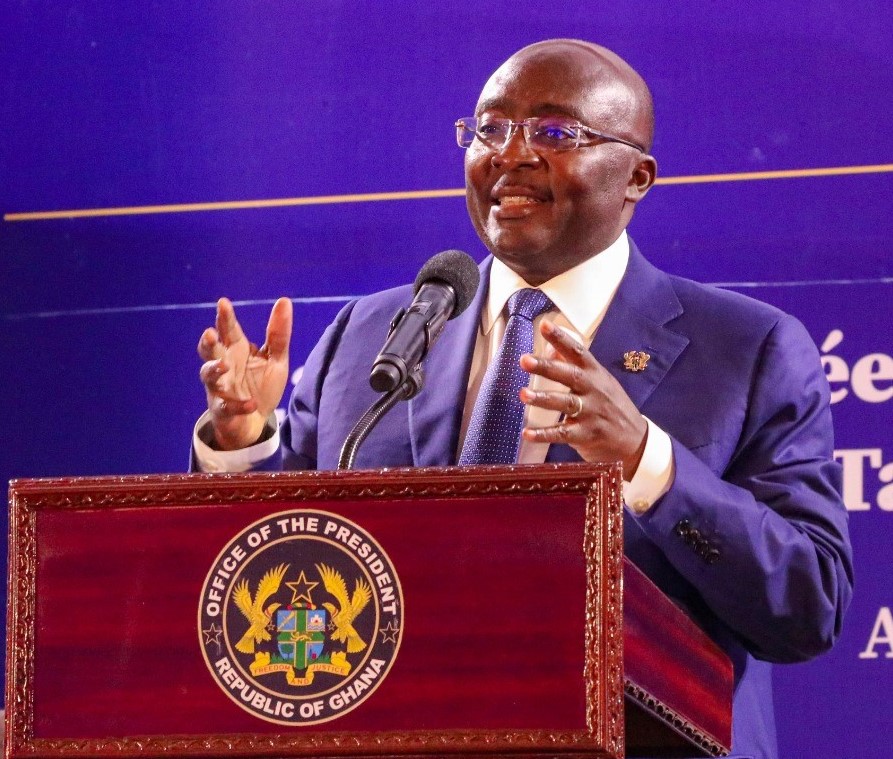Tax clearance certificate to be made mandatory for Ghanaians before receiving public services next year

Vice President Mahamudu Bawumia says as part of efforts to enhance government’s revenue mobilization drive, an automated tax clearance certificate portal will be introduced in October by the Domestic Tax Revenue Division of the Ghana Revenue Authority (GRA).
The self-service portal would allow prospective taxpayers to file their tax returns and receive tax clearance certificates on their mobile phones immediately.
This is to enhance voluntary tax compliance by every Ghanaian and to help improve Ghana’s tax to GDP ratio of 13.5 per cent, which is one of the lowest in Africa.
Taxpayers could also view their tax status on the portal, receive reminders and due date for payment of taxes, file tax returns, follow the accuracy of income tax paid by their employers and get tax credit.
The taxpayers’ portal and its tax app are available on Google and Apple play store, which was developed by a Ghanaian information technology service provider.
The move was necessitated by the frequent delays in issuance of tax clearance certificates by the GRA, the challenges in verifying genuine tax clearance certificates, loss of tax clearance certificates and the alleged malpractices by some tax officials.
Addressing participants at the 10th Annual International Tax Conference in Accra on Wednesday, Dr Bawumia said when the automated tax clearance certificate came into force this year, many public services would require the applicant to present a tax clearance certificate before being rendered to him or her in 2023.
“For instance, if you apply for a driver’s license and they ask for your tax clearance certificate you have to present it. If you apply for a birth certificate or any other public service, the tax clearance certificate will be required,” Dr Bawumia added.
The three-day conference was organised by the Chartered Institute of Taxation, Ghana (CITG) on the theme: “Improving Domestic Tax Revenue Mobilization: A Consultative and Inclusive Approach.”
It brought together heads of public sector institutions, policy-makers, government officials and tax experts to brainstorm on ways to improve revenue mobilization and enhance tax compliance for socio-economic development.
To access the automated tax clearance portal, the Vice President said anyone could log into it using the Ghana Card number.
“The system will do a background check to ensure that there is no outstanding tax returns and payments. So successful applicants will be issued with their tax clearance certificate on their mobile phones and those who are unsuccessful will receive reasons,” Dr Bawumia explained.
“This is aimed at reducing the discretionary use of power and its attendance corruption or alleged corruption by public officials while promoting voluntary tax compliance and ensuring tax friendly environment,” he emphasized.
The Vice President was of the conviction that the move would help eradicate fake tax clearance certificates from the system, enhance transparency and ensure automatic verification of one’s tax clearance certificate.
Dr Bawumia noted that since the Government assumed office in 2017, it had laid the background or machinery for domestic revenue mobilization and mentioned the implementation of the various digitalisation initiatives put in place by government to realise that goal.
They included the rolling out of the GhanaCard by the National Identification Authority to provide unique identity to every Ghanaian, the digital address system for easy identification of locations and property, the mobile money interoperability payment system for financial inclusion, and the electronic licensing by the Driver and Vehicle Licensing Authority.
There was also the Ghana.org portal for payment of public services and receipt of payments into government account, and many other innovative programmes.
Mr Emmanuel Obeng Asiedu, Chairman of CITG Council, who chaired the function, said the three-day conference would provide an opportunity for stakeholders in the tax regime to share innovative ideas and experiences towards improving revenue mobilization.
Source: GNA
